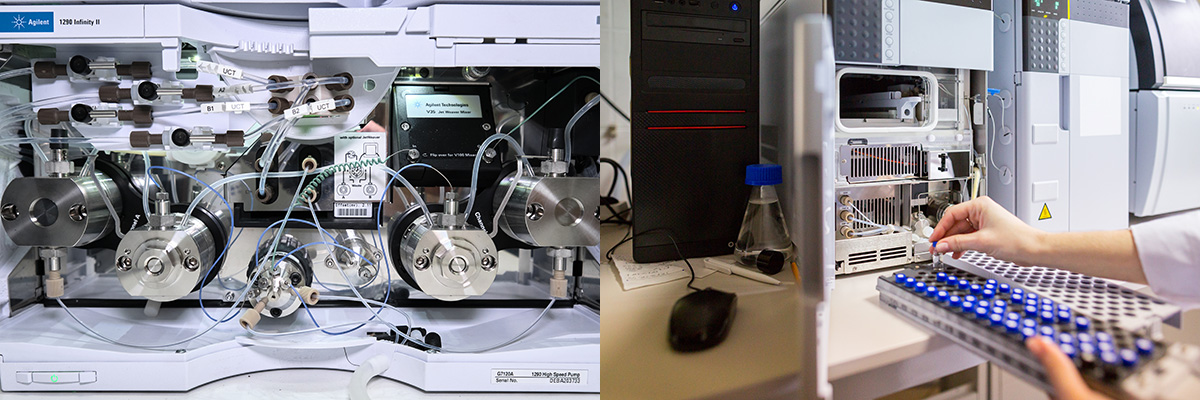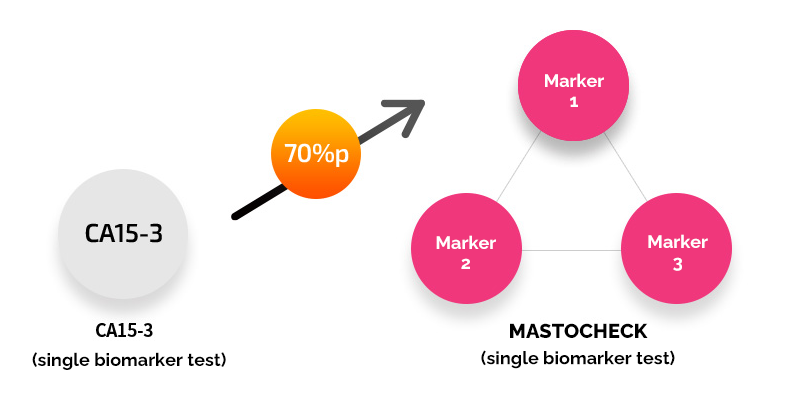Biomarker?

- What is a Biomarker?
-
Biomarkers refer to biological substances - such as proteins, genes, or metabolites - that can be used to diagnose specific diseases or guide treatment decisions. They are widely applied across various medical fields, including cancer diagnosis and drug response testing. Due to their ability to enable more accurate and less invasive testing, biomarkers have garnered increasingly significant attention in the medical community.
- What is a multi-biomarker test?
-
Most traditional cancer tests rely on a single biomarker, such as CA15-3 for breast cancer. However, single biomarkers often lack consistent expression across all cancer patients and can produce elevated levels in non-cancerous conditions limiting their diagnostic reliability.
To overcome these limitations, researchers have focused on combining multiple biomarkers to improve both diagnostic sensitivity and disease specificity. One such advancement is MASTOCHECK, a multi-biomarker blood test that analyzes three breast cancer-specific proteins. This approach has demonstrated over 70% greater diagnostic accuracy compared to the conventional CA15-3 test.

Neoplasma. 1994;41(4):213-6., Isr J Med Sci. 1988 Sep-Oct;24(9-10):623-7
Patent registered (10-1431062) Efficacy of Mastocheck for Screening of Early Breast Cancer: Comparison with Screening Mammography, 2019
- What is Proteomics?
-
Proteomics is a broad field of research that studies the roles and characteristics of various proteins, as well as their interrelationships.
In the medical field, it is applied to conduct comprehensive research on hundreds of thousands of proteins within the human body.
This research aims to identify proteins that are actual causes of diseases and develop effective treatment methods for them.
- Why does it test with proteins instead of genes?
-
Proteins are the basic unit for human biological activity.
While there are only about 30,000 genes, the number of proteins reaches millions.
Diseases caused by genetic mutations are limited, and it is proteins that are directly involved in the development and progress of diseases.
This is why identical twins who share 100% genes exhibit different diseases depending on protein expressions.

